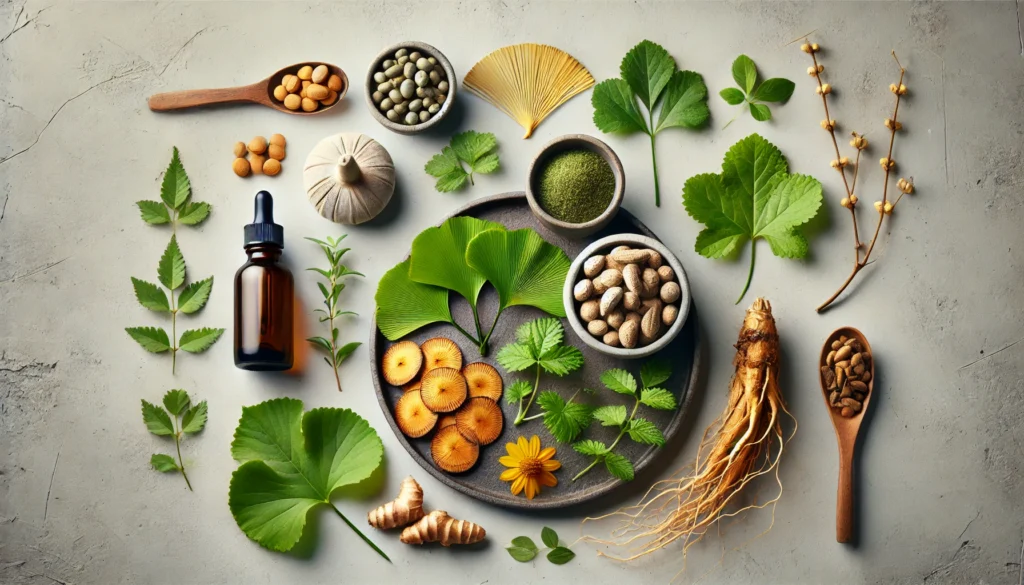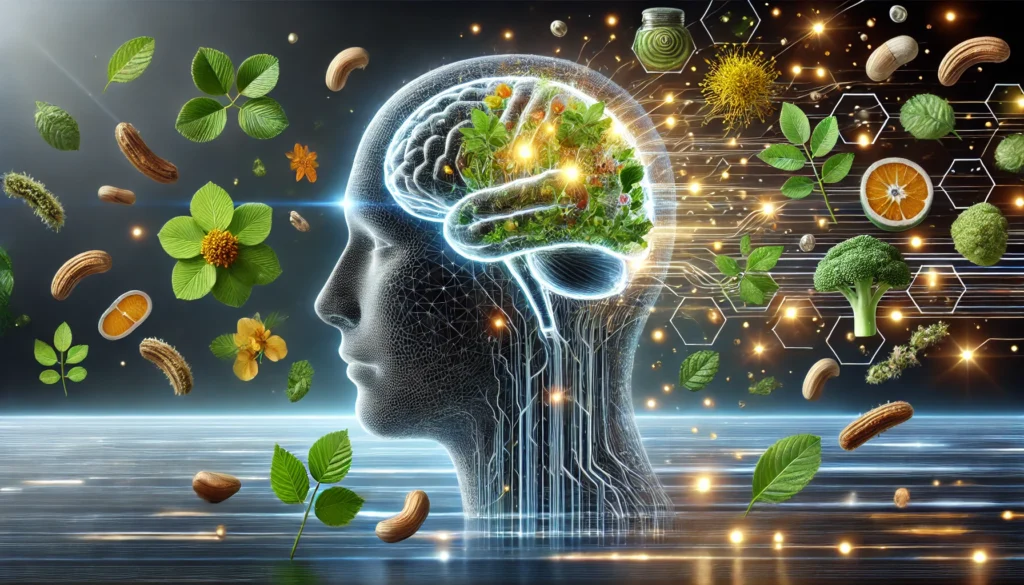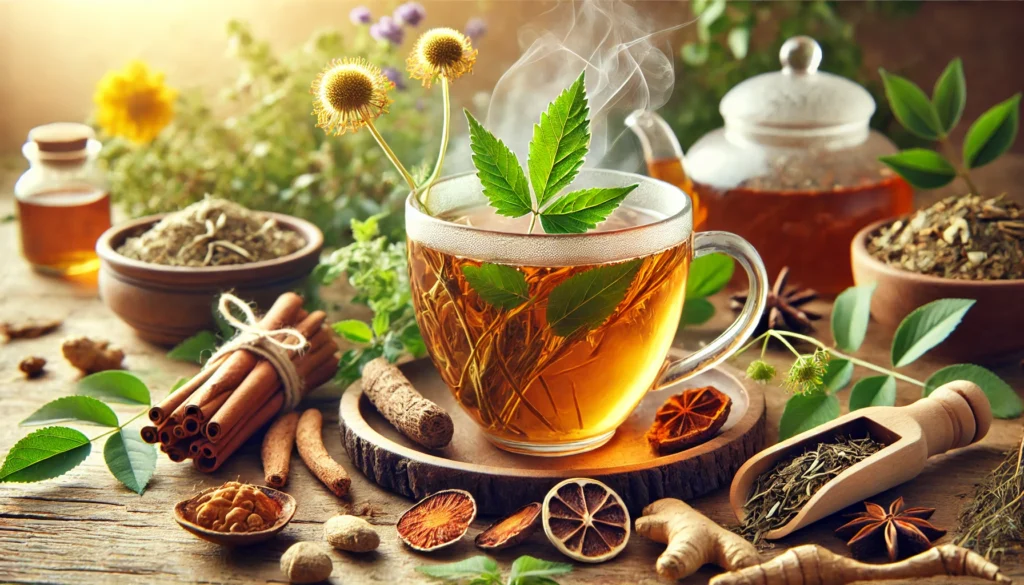In our fast-paced world, maintaining focus and sustaining energy levels are crucial for productivity and well-being. Whether you’re a health and wellness coach, a science journalist, or a biohacker, understanding the natural solutions to enhance cognitive function and vitality can be immensely valuable. This article delves into the best herbs for focus and energy, providing you with a comprehensive guide to herbal solutions that can invigorate your mind and body.
You May Also Like: Top Brain Health Product Brands Reviewed
The Historical Context of Herbal Remedies
Herbal medicine has been used for centuries across various cultures to promote health and treat ailments. Ancient civilizations, from the Egyptians to the Chinese, have documented the use of plants for their medicinal properties. Today, the resurgence of interest in natural remedies highlights the enduring relevance of herbs in modern health and wellness practices.
Ancient Civilizations and Herbal Wisdom
The Egyptians utilized herbs like aloe vera and garlic for both culinary and medicinal purposes. Papyrus scrolls detail their extensive use of plant-based concoctions for everything from pain relief to spiritual rituals. In China, traditional medicine has long relied on an intricate understanding of herbal interactions, with texts like the Huangdi Neijing forming the foundation of their medical practices.
Ayurvedic Traditions and Their Influence
In India, Ayurveda has been a guiding force in herbal medicine for over 3,000 years. This holistic approach focuses on balancing the body’s energies through plant-based treatments and lifestyle practices. Herbs like turmeric and ashwagandha are not only staples in Ayurvedic medicine but have also gained global recognition for their health benefits.
Modern Resurgence in Herbal Use
In the 21st century, there is a growing trend towards integrating traditional herbal knowledge with modern scientific research. This resurgence is driven by a desire for natural alternatives to pharmaceuticals and a deeper understanding of plant-based compounds. Today, herbal supplements are more accessible than ever, making it easier for individuals to incorporate these remedies into their daily routines.

Understanding How Herbs Work
Herbs can influence the body and mind through their active compounds, which interact with our biological systems. They can enhance neurotransmitter activity, improve circulation, and reduce inflammation, all of which are essential for cognitive function and energy.
Biological Pathways and Herbal Interactions
Herbs contain bioactive compounds that interact with the body’s physiological pathways. For example, flavonoids in herbs like Ginkgo Biloba enhance blood flow and protect against oxidative stress. These interactions can improve mental clarity and concentration.
Neurotransmitter Modulation
Many herbs influence neurotransmitters such as serotonin, dopamine, and acetylcholine. For instance, Bacopa Monnieri is known to enhance the activity of acetylcholine, a neurotransmitter crucial for learning and memory. This modulation can lead to improved mental performance and mood stabilization.
Anti-inflammatory and Antioxidant Properties
Chronic inflammation and oxidative stress are linked to cognitive decline and fatigue. Herbs like Rhodiola Rosea possess strong anti-inflammatory and antioxidant properties, which help mitigate these issues. By reducing inflammation, these herbs support overall brain health and energy levels.
Key Herbs for Focus and Concentration
- Ginkgo Biloba: Renowned for its ability to improve blood flow to the brain, Ginkgo Biloba is a popular choice for enhancing memory and concentration. Studies suggest that it can be particularly beneficial for individuals experiencing cognitive decline.
- Bacopa Monnieri: Traditionally used in Ayurvedic medicine, Bacopa Monnieri is celebrated for its cognitive-enhancing properties. It is believed to improve memory retention and information processing speed.
- Rhodiola Rosea: This adaptogenic herb helps the body cope with stress while boosting mental performance. Rhodiola is particularly effective in reducing fatigue and enhancing cognitive function during stressful periods.
Ginkgo Biloba: Enhancing Cerebral Circulation
Ginkgo Biloba increases cerebral blood flow, which can lead to improved cognitive function. It contains terpenoids and flavonoids that act as antioxidants, protecting nerve cells from damage. This herb is especially beneficial for aging individuals, as it supports memory and attention span.
Bacopa Monnieri: The Brain Tonic
Bacopa Monnieri is often referred to as a “brain tonic” due to its ability to enhance cognitive processes. It is believed to increase the proliferation of dendrites, the branches of nerve cells that facilitate communication between neurons. Regular use of Bacopa can lead to enhanced learning abilities and a sharper memory.
Rhodiola Rosea: The Adaptogen for Mental Clarity
Rhodiola Rosea is classified as an adaptogen, meaning it helps the body adapt to stressors. It influences the production of neurotransmitters like serotonin and norepinephrine, which are crucial for mood regulation and cognitive sharpness. During periods of high stress, Rhodiola can help maintain focus and mental endurance.
Herbs That Boost Energy and Motivation
- Panax Ginseng: Often referred to as the “King of Herbs,” Panax Ginseng is well-known for its energy-boosting properties. It enhances physical stamina and mental clarity, making it a favorite among those seeking a natural energy lift.
- Ashwagandha: Another adaptogen, Ashwagandha, is used to combat stress and increase vitality. It supports adrenal function, which is crucial for maintaining energy levels and reducing fatigue.
- Maca Root: Native to the Andes, Maca Root is recognized for its ability to enhance endurance and stamina. It’s a natural energizer that can improve mood and increase motivation.
Panax Ginseng: The Energizing Powerhouse
Panax Ginseng is revered for its ability to revitalize energy levels. It contains ginsenosides, compounds that influence energy metabolism and reduce fatigue. This herb is beneficial for both physical and mental endurance, making it a popular choice for athletes and professionals alike.
Ashwagandha: The Stress Reliever
Ashwagandha has been used in Ayurvedic medicine to support energy and reduce stress. It helps balance cortisol levels, the hormone responsible for stress response, thereby enhancing overall vitality. Regular consumption of Ashwagandha can lead to improved energy levels and reduced feelings of fatigue.
Maca Root: The Stamina Enhancer
Maca Root is rich in amino acids, essential for energy production and muscle function. It supports the endocrine system, promoting hormonal balance and vitality. Often used by athletes, Maca can improve endurance, mood, and motivation, making it an excellent choice for those needing a natural energy boost.

Herbal Supplements: A Modern Approach
The integration of herbs into dietary supplements has made it easier than ever to harness their benefits. Herbal supplements offer concentrated doses of active compounds, ensuring consistent intake for optimal results.
Formulating Effective Herbal Blends
Crafting a potent herbal supplement involves selecting complementary herbs that work synergistically. This requires an understanding of each herb’s properties and how they interact. A well-formulated blend can enhance the efficacy of individual herbs, providing a comprehensive solution for focus and energy.
Evaluating Quality and Potency
When choosing herbal supplements, it’s crucial to assess the quality and potency of the products. Look for supplements that are third-party tested, ensuring they meet high standards of purity and concentration. Potent formulations will offer the most significant benefits.
Incorporating Supplements into Daily Life
To effectively incorporate herbal supplements, establish a routine that aligns with your lifestyle. Consistent use is key to experiencing the full range of benefits. Consider pairing supplements with meals for better absorption and integrating them into your daily wellness practices.
Safety and Considerations
While herbs are natural, they are not without side effects or contraindications. It’s essential to consult with a healthcare professional before starting any new supplement, especially if you have underlying health conditions or are taking medication.
Potential Side Effects and Interactions
Herbs can interact with medications and may have side effects. For instance, Ginkgo Biloba may increase bleeding risk when taken with anticoagulants. Understanding these interactions is crucial for safe herbal use.
Consulting Healthcare Professionals
Before adding new herbal supplements to your regimen, seek advice from healthcare professionals. They can provide guidance on appropriate dosages and potential contraindications, ensuring your safety and well-being.
Personalizing Herbal Use
Each individual’s response to herbs can vary. Personal factors such as age, weight, and health status can influence how herbs affect you. Tailor your herbal regimen to your specific needs and monitor any changes in your body’s response.
Current Trends and Future Implications
The growing interest in herbal remedies reflects a broader trend towards holistic health and wellness. As scientific research continues to explore the mechanisms and benefits of herbs, we can expect more precise formulations and targeted applications in the future.
Innovations in Herbal Research
Recent advancements in herbal research have led to the identification of new compounds and their effects on health. This ongoing exploration is paving the way for novel applications and more effective herbal formulations.
The Global Movement Towards Natural Solutions
The shift towards natural health solutions is a global trend, driven by a desire for sustainable and holistic wellness practices. This movement is influencing the development of herbal products and increasing their availability worldwide.
Forecasting Future Applications
As the understanding of herbal compounds deepens, future applications may include targeted therapies for specific health conditions. Innovations in extraction and formulation techniques will likely enhance the efficacy and safety of herbal products.
Practical Advice for Incorporating Herbs into Your Routine
- Start Small: Introduce one herb at a time to assess its effects on your body and mind.
- Consistency is Key: Herbal supplements often require regular use to achieve desired results.
- Pair with a Healthy Lifestyle: Optimal focus and energy levels are best supported by a balanced diet, regular exercise, and adequate sleep.
Gradual Integration and Monitoring
Begin with a low dose of a single herb to observe how your body responds. Gradually increase the dosage if needed, while monitoring for any adverse reactions. This cautious approach allows you to gauge the herb’s effectiveness and suitability for your needs.
Establishing a Routine
Consistency is crucial when using herbal supplements. Set a specific time each day to take your supplements, integrating them into your daily routine. This regularity helps in achieving the desired outcomes over time.
Supporting Herbs with Lifestyle Choices
Herbal supplements are most effective when complemented by a healthy lifestyle. Ensure your diet is rich in nutrients, engage in regular physical activity, and prioritize adequate sleep. These habits will enhance the benefits of herbs and promote overall well-being.

Conclusion
Herbs offer a promising avenue for enhancing focus and energy naturally. By understanding their historical context, active mechanisms, and modern applications, you can make informed choices about incorporating these powerful plants into your wellness routine. As always, balance herbal use with a healthy lifestyle and professional guidance to maximize benefits and ensure safety.
Further Reading:
7 Best Herbs for Memory and Brain Health
Nootropic Herbs, Shrubs, and Trees as Potential Cognitive Enhancers
Important Note: The information contained in this article is for general informational purposes only, and should not be construed as health or medical advice, nor is it intended to diagnose, prevent, treat, or cure any disease or health condition. Before embarking on any diet, fitness regimen, or program of nutritional supplementation, it is advisable to consult your healthcare professional in order to determine its safety and probable efficacy in terms of your individual state of health.
Regarding Nutritional Supplements Or Other Non-Prescription Health Products: If any nutritional supplements or other non-prescription health products are mentioned in the foregoing article, any claims or statements made about them have not been evaluated by the U.S. Food and Drug Administration, and such nutritional supplements or other health products are not intended to diagnose, treat, cure, or prevent any disease.


